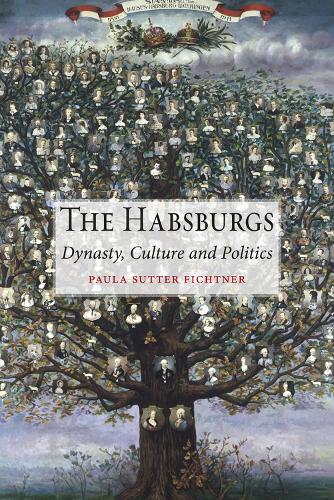
The Habsburgs: Dynasty, Culture and Politics
(Hardback)
Publishing Details
The Habsburgs: Dynasty, Culture and Politics
By (Author) Paula Sutter Fichtner
Reaktion Books
Reaktion Books
1st August 2014
United Kingdom
Classifications
Tertiary Education
Non Fiction
European history
943.03
Physical Properties
Hardback
288
Description
On 28 June 1914, in the Bosnian capital of Sarajevo, Archduke Franz Ferdinand of Habsburg-Lorraine-Este was shot dead. Known as the moment that sparked off the First World War, this incident also initiated another, lesser-known story: the beginning of the end of Habsburg rule, which came four years later. In this comprehensive account of the longest-lived European empire, Paula Sutter Fichtner explains how the dynasty came to play such a decisive role in the fate of the continent.The Habsburgs: Dynasty, Culture and Politicstraces the origins of house Habsburg and shows how it was able to hold together such a culturally diverse, polyglot and multi-ethnic state for more than 600 years, the cessation of which changed the shape of Europe forever. Taking account of the interpenetration of culture, politics and society, the book reveals the strategies that enabled the dynasty's extraordinarily long life - its dazzling mix of cultural propaganda, public performances and cunning political manoeuvring. It is one of the most striking ironies of this history that Ferdinand was killed while on his way to visit injured people in hospital - just the sort of crowd-pleasing performance that had enabled Habsburg success. This incisive new history tells the story of the Habsburgs in an accessible yet authoritative fashion, revealing the intriguing principal characters in the drama and breathing fresh life into the story of the Habsburg reign. The book charts one of the pivotal foundation stories of modern Europe, and is essential reading for anyone interested in the history of the continent.
Reviews
Sutter Fichtner has produced a lucid and succinct account of a complicated history, and a readable and persuasive synthesis of recent research . . . an argument that has the great virtue of making coherent a dynastic history that pursued a similar cultural agenda across the course of hundreds of years. * BBC History Magazine *
Coinciding neatly with the one hundredth anniversary of the outbreak of World War I, the publication of Paula Fichtners new book sheds fresh light on the history of the dynasty at the centre of events in the summer of 1914. General histories of the Habsburgs are plentiful, so it is greatly to the authors credit that she provides a new angle on the great survivors among Europes ruling houses . . . Fichtner crafts a fine narrative . . . one can end by reiterating how valuable an addition to the literature this is. Fichtner provides a vivid, up-to-date survey, which has much to offer those both unfamiliar and already familiar with the topic. * European History Quarterly *
Writing the history of the Habsburgs from the very beginning until Charles I, as Paula Sutter Fichtner sets out to do in Habsburgs: Dynasty, Culture and Politics, seems like an extremely risky but rewarding undertaking, and one that she successfully accomplishes. * European Review of History *
a thoroughly readable presentation of cultural history and dynastic propaganda that, unlike most of histories of the Habsburgs, takes the story up to the present. * perspectivia.net *
Author Bio
Paula Sutter Fichtner is Professor of History Emerita at Brooklyn College and Graduate Center, City University of New York. She is the author of many books including Protestantism and Primogeniture in Early Modern Germany (1997), Emperor Maximilian II (2001), and The Habsburg Monarchy 1490-1848: Attributes of Empire (2003) and Terror and Toleration: The Habsburg Empire Confronts Islam, 1526-1850 (Reaktion, 2008).
